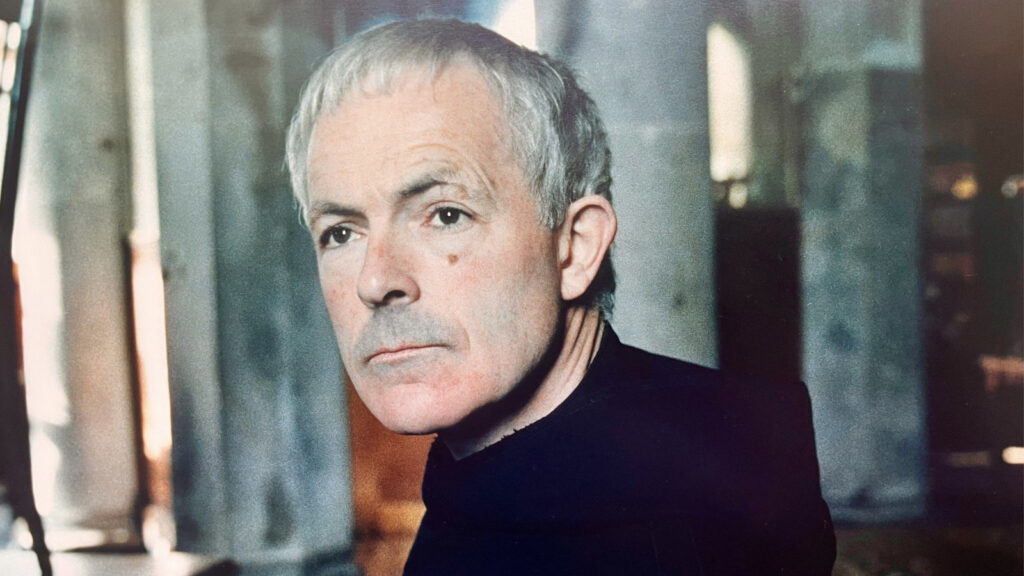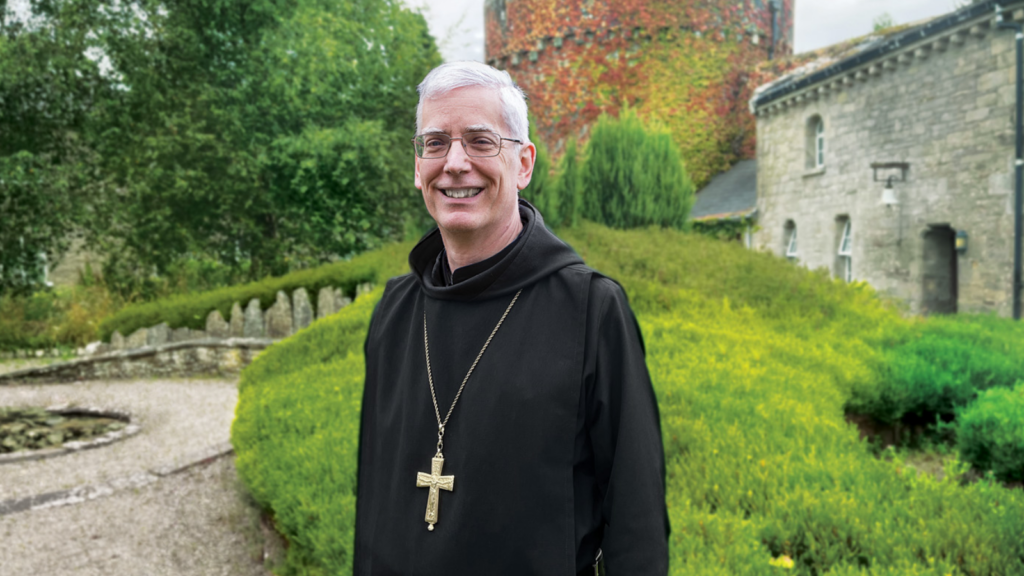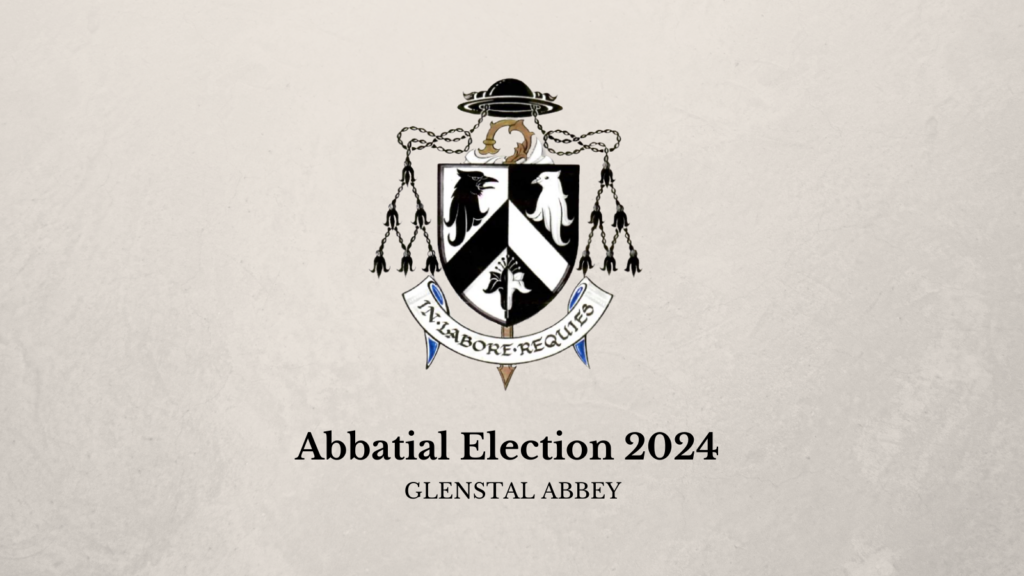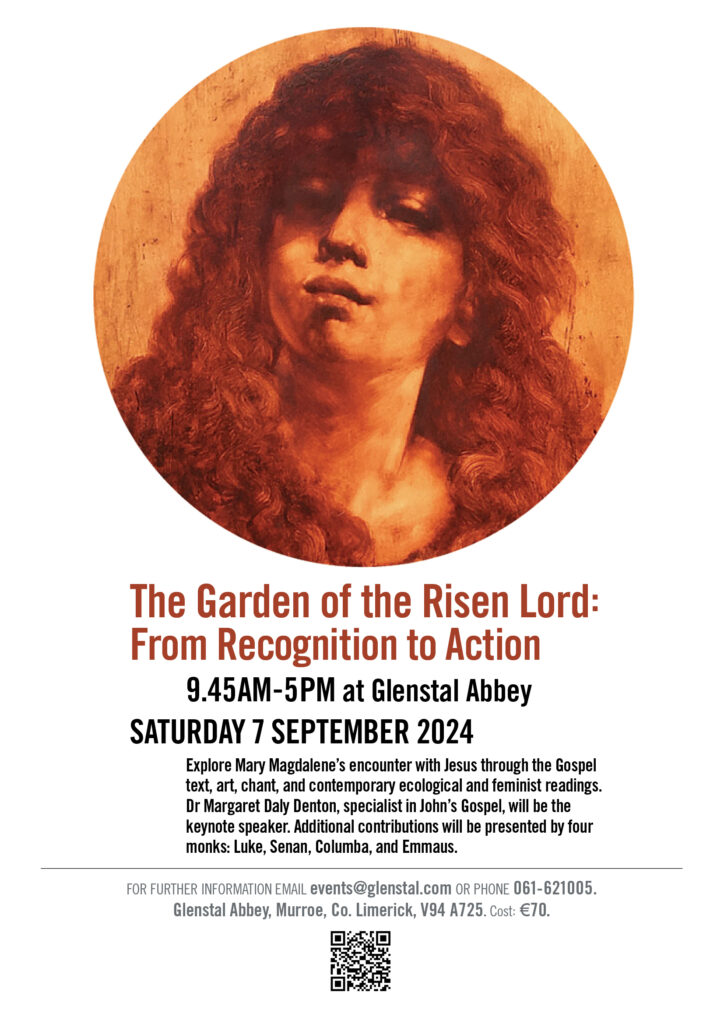
The monastic community at Glenstal Abbey remembers Father Kevin Healy OSB whose 25thanniversary occurs today.
Daniel Charles Healy was born in Dublin on 30th June 1933. He attended Glenstal Abbey School and began a B.A. course in Univeristy College Dublin which he interrupted in order to enter Glenstal on 27th October 1951, taking the name Kevin. He was professed on 12th March 1953 and, following studies in the Spiritan scholasticate at Kimmage Manor in Dublin, was ordained priest on 31st July 1958.
Back in Glenstal he developed his interest in music and chant, becoming first chanter and engaging in the composition of music for the liturgy in the post-Vatican II period. He also developed his skills as an accomplished calligrapher. Examples of his script can be seen in the monastic annals which he kept from July 1977 to January 1981. Along with the late Father Bede Lynch he was instrumental in developing the school choir which he took over completely when Father Bede was assigned to ministry abroad.
In October 1973 he went to the Abbey of Münsterschwarzach near Würzburg in Franconia where he trained as a sliversmith, qualifying as a journeyman in April 1976. Back in Glenstal he attempted to establish a metalwork shop but economic conditions in Ireland at that period meant that there was little or no demand for silverware. The deep bowl communion-dish that we use at our community Mass is his examination-piece as a journeyman. Father Kevin resumed his work with the school choir as organist, as a liturgical composer and as assistant in the administration of both monastery and school.
In August 1992 he went to Glenstal’s foundation at Ewu-Isan in Nigeria, where he established the tradition of liturgical music. Although he had recovered from a bout of viral malaria, he died on 31st July 1999 while being transported to hospital in Ibadan for further treatment. He is buried at Ewu and there is a memorial stone to him on the wall of our monastic cemetery at Glenstal.
We remember Fathers Francis Henry, Cornelius Doherty and Bede Lebbe whose anniversaries also occur at this time. May they rest in peace and rise in glory. Amen.




 ‘The Garden of the Risen Lord: From Recognition to Action’ takes place on Saturday 7th September and will explore Mary Magdalene’s encounter with Jesus through the Gospel text, art, chant, and contemporary ecological and feminist readings. The day includes:
‘The Garden of the Risen Lord: From Recognition to Action’ takes place on Saturday 7th September and will explore Mary Magdalene’s encounter with Jesus through the Gospel text, art, chant, and contemporary ecological and feminist readings. The day includes: